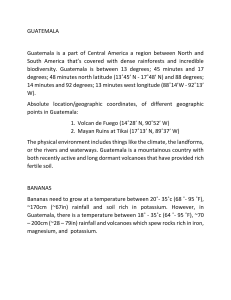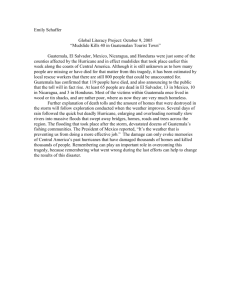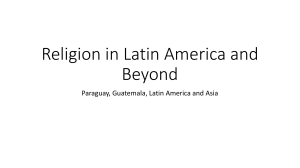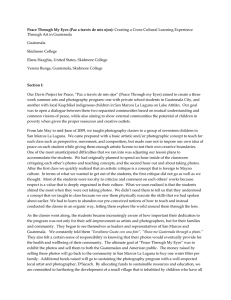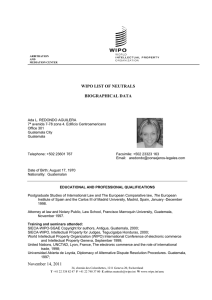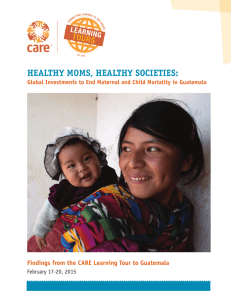C : O R
advertisement
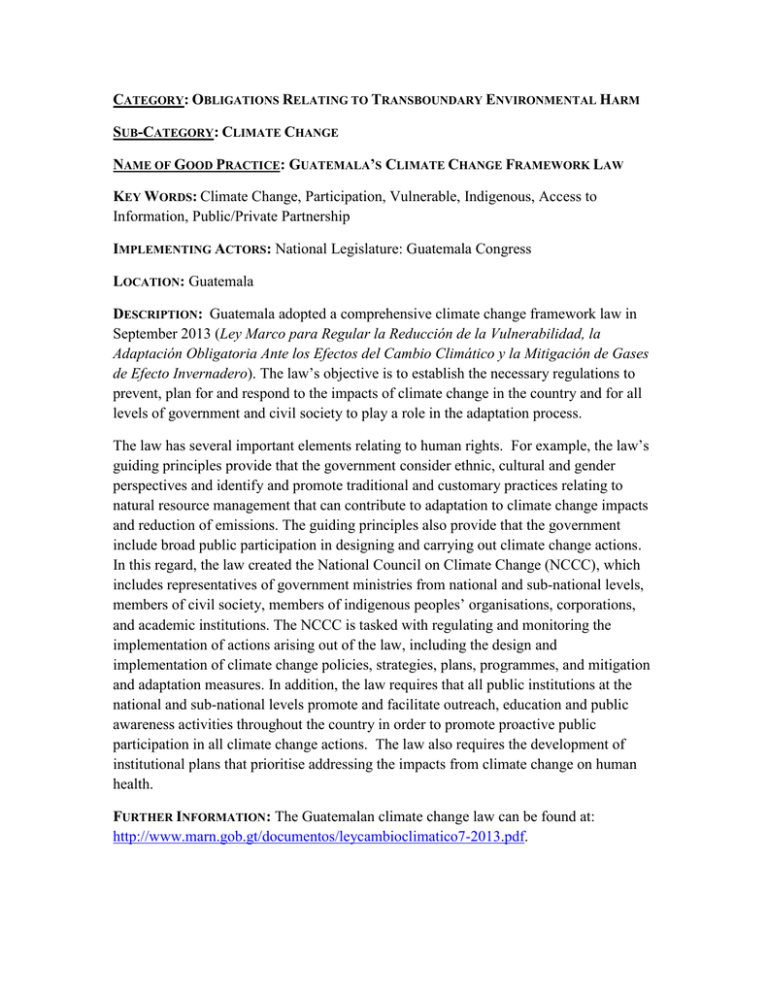
CATEGORY: OBLIGATIONS RELATING TO TRANSBOUNDARY ENVIRONMENTAL HARM SUB-CATEGORY: CLIMATE CHANGE NAME OF GOOD PRACTICE: GUATEMALA’S CLIMATE CHANGE FRAMEWORK LAW KEY WORDS: Climate Change, Participation, Vulnerable, Indigenous, Access to Information, Public/Private Partnership IMPLEMENTING ACTORS: National Legislature: Guatemala Congress LOCATION: Guatemala DESCRIPTION: Guatemala adopted a comprehensive climate change framework law in September 2013 (Ley Marco para Regular la Reducción de la Vulnerabilidad, la Adaptación Obligatoria Ante los Efectos del Cambio Climático y la Mitigación de Gases de Efecto Invernadero). The law’s objective is to establish the necessary regulations to prevent, plan for and respond to the impacts of climate change in the country and for all levels of government and civil society to play a role in the adaptation process. The law has several important elements relating to human rights. For example, the law’s guiding principles provide that the government consider ethnic, cultural and gender perspectives and identify and promote traditional and customary practices relating to natural resource management that can contribute to adaptation to climate change impacts and reduction of emissions. The guiding principles also provide that the government include broad public participation in designing and carrying out climate change actions. In this regard, the law created the National Council on Climate Change (NCCC), which includes representatives of government ministries from national and sub-national levels, members of civil society, members of indigenous peoples’ organisations, corporations, and academic institutions. The NCCC is tasked with regulating and monitoring the implementation of actions arising out of the law, including the design and implementation of climate change policies, strategies, plans, programmes, and mitigation and adaptation measures. In addition, the law requires that all public institutions at the national and sub-national levels promote and facilitate outreach, education and public awareness activities throughout the country in order to promote proactive public participation in all climate change actions. The law also requires the development of institutional plans that prioritise addressing the impacts from climate change on human health. FURTHER INFORMATION: The Guatemalan climate change law can be found at: http://www.marn.gob.gt/documentos/leycambioclimatico7-2013.pdf.

